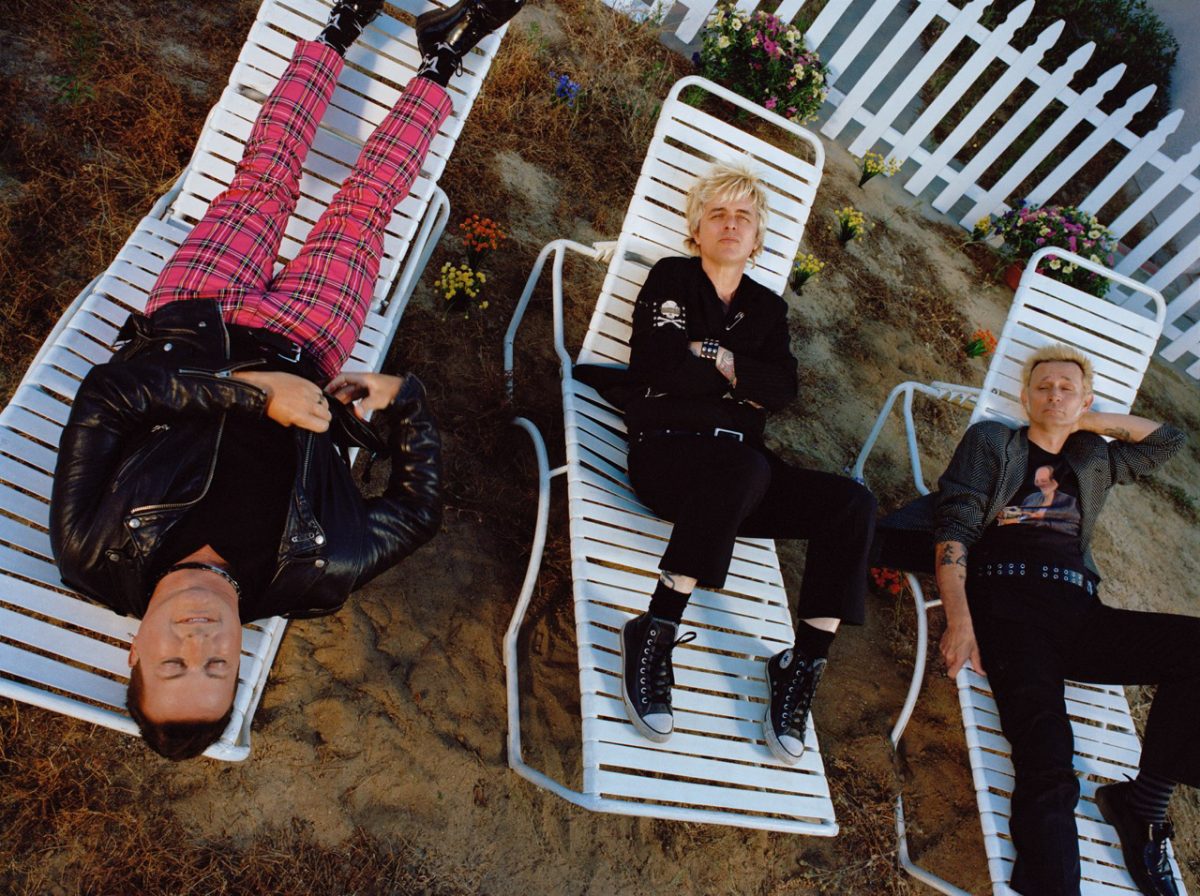2024 has already been a big year for Green Day, and it’s only February. The Oakland-based rock band has launched into the year with both a New Year’s controversy and a new album, titled “Saviors.” Green Day is now 30 years out from its initial break into stardom with 1994’s “Dookie,” and 20 years out from its return to mainstream success with 2004’s “American Idiot.”
Released in January, “Saviors” is a reminder that Green Day still has the same punk-rock prowess that brought the band to fame in the first place. With this album, Green Day looks back, taking notes from both its own discography as well as a range of other influences — from punk rock to britpop. This album also marks a reunion with producer Rob Cavallo, the mastermind behind albums from the band’s golden era.
Fans had been left disappointed with Green Day’s previous album, “Father of All Motherfuckers,” a garage-rock-inspired piece that significantly departed from the band’s recognizable sound. But with “Saviors,” Green Day takes a step back to remind us of who these musicians are — political, personal and messy.
“I was just trying to write the best songs that I could that came naturally,” Green Day’s frontman Billie Joe Armstrong said in a Vulture interview. “I got so inside of the record that you get to a point where you don’t know if it’s a cohesive idea or not … ‘Saviors’ does feel like a trifecta with Dookie and American Idiot where it feels like a life’s work.”
The album is not without fault; structurally, it does itself a disservice by placing the most sonically and thematically interesting songs toward the middle of the track list. This renders the album’s opening quarter far weaker than the other three sections by comparison.
Despite this, the band does not shy away from kicking off “Saviors” by tackling political dissatisfaction, offering up a protest song with the opening single, “The American Dream Is Killing Me.” It’s a title fitting the track’s anthemic punk energy, harkening back to the “American Idiot” era, with its in-your-face guitar intro and punchy, cynical lyrics like “Kiss me, I’m dead inside / Who needs suicide when / The American dream is killin’ me.”
But easily, the album’s standout track is the fifth song, “Dilemma.” This is where the record truly picks up in terms of quality. The song is endlessly catchy, and features some of the band’s best instrumentals. At the same time, it manages to be equally personal, touching on Armstrong’s longtime struggle with addiction and relapse.
“Strange Days Are Here To Stay” also takes notes from the band’s own history, with its palm-muted intro reminiscent of “Basket Case,” and the chorus’ downcast melody full of dynamic instrumentals. The cynical subject matter evokes something akin to “Letterbomb” from “American Idiot.” In a way, “Strange Days Are Here To Stay” feels like a spiritual successor to the “Letterbomb.” The new song offers similar lyrics to its predecessor, both probing how much culture has changed — for example, “Ever since Bowie died, it hasn’t been the same.”
The guitarwork feels refreshing, especially the musical breaks that feature eclectic solos and layering that distort together as each track ascends to a climax. Each member of the band is audibly present in the album, with Mike Dirnt’s bass lines getting a chance to shine and Tré Cool’s drumming superb as usual. Armstrong’s vocals hold true still, with bouts of screaming that give songs like “Living in the ’20s” a soulful fervor to punctuate its political frustration.
The band also shows that it’s not afraid to get personal, tackling themes like fatherhood, addiction and sexuality. Armstrong relentlessly clarified to the press that he is bisexual for years, but never in such straightforward terms as he does in the album’s third song, “Bobby Sox.” The chorus switches from “Do you wanna be my girlfriend?” to “Do you wanna be my boyfriend?” with no lack of that high energy, throaty screaming that intensifies with every passing line of the song.
Admittedly, some of the lyrics on “Saviors” do fall into the trap of overgeneralization. There’s a lack of specificity, which makes attempts at emotion not necessarily land — whether they be clichéd, sentimental lyrics, or political digs which only half-gesture at current events. It’s why songs like “Father to a Son,” which opens with lyrics like “You’re a lighthouse in a storm / From the day that you were born,” do not hit the same emotional resonances that past acoustic entries like “Wake Me Up When September Ends” were able to achieve.
“Saviors” does not do anything new. It is, at the end of the day, a relatively safe entry that only narrowly escapes predictability, and cannot compete with the highs of Green Day’s legacy. But, the band doesn’t necessarily need to reinvent a formula that works. If you don’t already like Green Day, this album won’t change that — but only Green Day could make this album.
Contact Brishti Sarkar at [email protected].






















































































































































